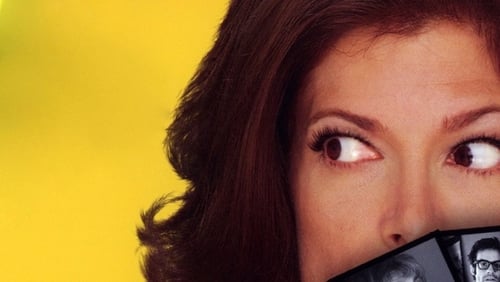
Nicole
Imelda, a larger-than-life character inspired by the director's grandmother, sets herself on a quest to settle old scores before celebrating her 100th birthday.

Producer
Adapted and inspired from the play Lipsynch, Triptyque is a contemporary urban saga that tells the story of Michelle a schizophrenic bookseller, Marie, singer and actress, and Thomas, a German neurologist. Three lives, three destinies that cross and resonate, Triptyque is a sensitive and deeply moving variation on the themes of memory and identity.

Madame Feydeau
Robert Lepage directed this Canadian comedy, filmed in black and white and color and adapted from Lepage's play The Seven Branches of the River Ota. In October 1970, Montreal actress Sophie (Anne-Marie Cadieux) appears in a Feydeau farce at the Osaka World's Fair. Back in Montreal, her boyfriend Michel (Alexis Martin) watches the October Crisis on TV and sees Canadian Prime Minister Trudeau declare the War Measures Act. The Canadian Army patrols Montreal streets. Sophie learns she's pregnant and phones Michel. However, Michel is immersed in politics, while Sophie rejects the amorous advances of her co-star (Eric Bernier), becomes friendly with a blind translator, and passes an evening with frivolous Canadian embassy official Walter (Richard Frechette) and his wife Patricia (Marie Gignac). Meanwhile, in Montreal, Michael plots terrorist activities. Commenting on East-West cultural distinctions, the film intercuts between Quebec (in black and white) and Japan (in color).

In this French Canadian thriller, an actress wins the role of a murder victim in a film based on the true story of an unsolved crime. She discovers her neighbor was the lover of the woman who was murdered in real life -- and is still a suspect.

Jeanne d'Arc
The year is 1952, in Quebec City. Rachel (16), unmarried and pregnant, works in the church. Filled with shame, she unburdens her guilt to a young priest, under the confidentiality of the confessional. In the present year of 1989, Pierre Lamontagne has returned to Quebec to attend his father's funeral. He meets up with his adopted brother, Marc, who has begun questioning his identity and has embarked on a quest for his roots that would lead them to the Quebec of the 1950s. Past and present converge in a complex web of intrigue where the answer to the mystery lies.




